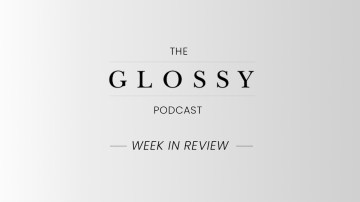Fashion brands from luxury to sportswear have capitalized on the Paris Olympics with campaigns and collections, hoping to benefit from the billions of people watching the games. But the Games have also proven to be a time of disruption. Not only are there unexpected events — like the sabotaging of Parisian trains as the games began, which disrupted daily life — but even regular day-to-day operations of the Olympics can be a net negative for brands within the host country.
One area in which brands face an uphill battle during the Olympics is wholesale ordering. Buyers often travel to see products in person, but doing so during the Olympics can be tough.
“We gathered feedback from both brands and buyers who noted these challenges and shared that they were rethinking or scaling back their travel plans to the French capital this market season,” said Amanda McCormick Bacal, svp of marketing at Joor, a wholesale platform that works with hundreds of fashion brands globally.
McCormick Bacal said that brands may underestimate the impact that hosting the Olympics can have on a city and the companies based there. The increased complexity of travel, higher hotel costs due to high demand and additional security routines can all make travel to the host city far more difficult while the games are running.
Jean Jacques-Guiony, CFO of LVMH, said on the company’s second-quarter earnings call on July 23 that, despite pouring more than $160 million into sponsoring the Olympics, the games have also made it difficult to properly predict and analyze store traffic and other important metrics.
“If you take the U.S., which is more stable, we don’t see a major problem with [foot] traffic,” Guiony said. “Traffic is not going up, but it’s not going down either. Europe is exactly the same thing, although we have more tourists and the Olympics in France are disturbing the whole thing, so making the analysis not that easy.”
Historically, the Olympics have had a net negative economic impact on host cities. The London Olympics in 2012, for example, cost the city $18 billion and brought in only $5.2 billion in revenue.
In response to some of the difficulties that French brands, in particular, have faced, Joor launched a digital trade show timed to the Olympics and focusing specifically on French and Parisian brands. The show, called Passport to Paris, features over 120 French brands, including Chloé, Celine, Jacquemus, and Armor Lux, and runs from July 29 to August 16. The show is the first of its kind that Joor has done highlighting a specific city, and it’s part of Joor’s ongoing partnership with Business France, a government agency dedicated to promoting French businesses.
Joor has continued to grow in the last few years, raising $25 million in 2023 on top of the $20 million it had raised prior. McCormick Bacal said constant check-ins with clients and timely initiatives like the Passport to Paris will continue to be a part of Joor’s strategy.
“Given our expansive reach in the fashion industry, we are very much in touch with shifting market dynamics and are constantly looking for innovative ways to provide solutions to our clients’ needs,” McCormick Bacal said.




